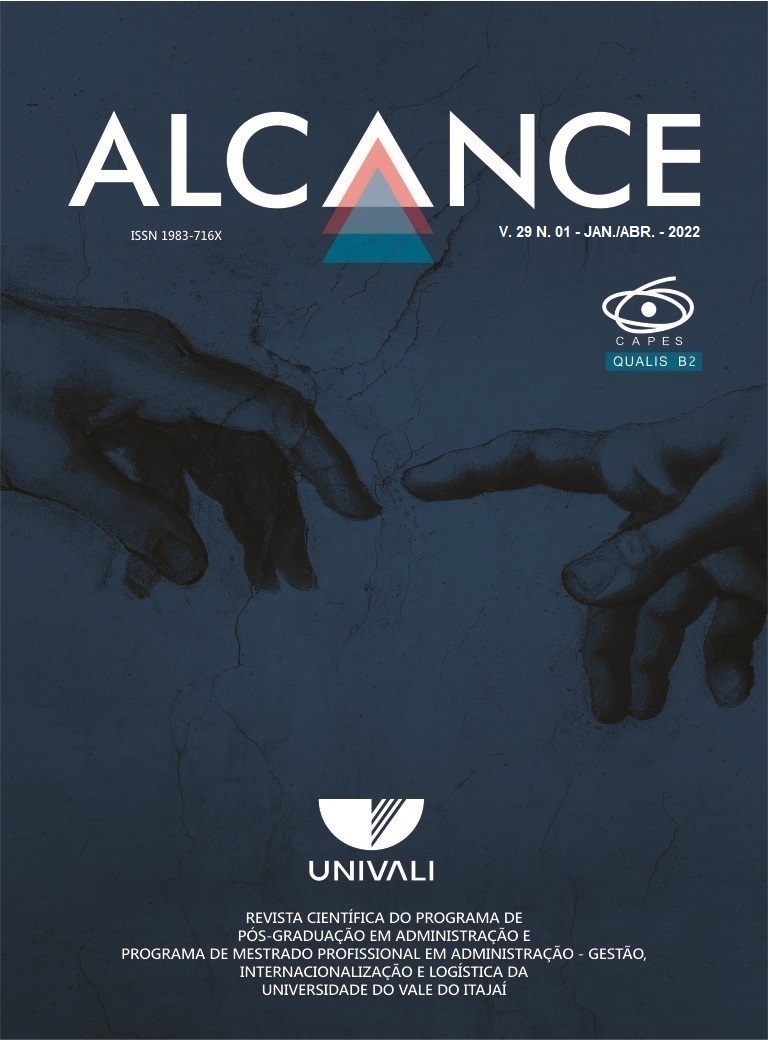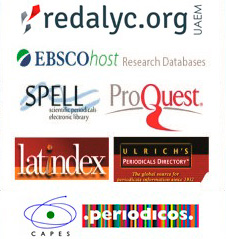THE COMPARATIVE ANALYSIS APPLIED TO PUBLIC POLICIES IMPLEMENTATIONS RESEARCH: MULTI VALUE QUALITATIVE COMPARATIVE ANALYSIS (MVQCA) METHOD
DOI:
https://doi.org/10.14210/alcance.v29n1(Jan/Abr).p35-52Keywords:
Comparative Analysis. QCA. Implementation. Public Policy. Interorganizational coordination.Abstract
Objective: This article aimed to describe and explore the applicability and adequacy of the MultiValue Qualitative Comparative Analysis (mvQCA) method to research aspects of public policy implementation, more specifically in the description of a typology of interorganizational coordination in the implementation of federal public programs, with a focus on production knowledge about comparative methods that can deal with typical challenges of social science research, such as the causal complexity and the diversity of variables involved in the analysis of public policies. Methodology: It involves a qualitative strategy of the content analysis type via a case study in which the mvQCA was applied. The case studied deals with the description of a typology of interorganizational coordination in implementing federal public programs. Results: This analysis indicates the adequacy of the method to public policy studies, especially in multiple variable contexts and in methodological designs that integrate supporting methods. Practical implications and originality factor: the analysis undertaken here demonstrates the potential of the mvQCA method to enable the use of complex analytical structures and the construction of empirical typologies in research on the implementation of public policies.References
Barton, A. H. (1955). The concept of property-space in social research. The language of social research, 40-53.
Barbosa, S. C. T. (2010). Implementação de programas públicos federais: caráter da coordenação interorganizacional. (Tese de Doutorado) Disponível em; https://repositorio.unb.br/bitstream/10482/8411/3/2010_SheilaCristinaToletinoBarbosa.pdf
Barbosa, S. C. T. (2016). Capacidade de gestão: coordenação interorganizacional na implementação de programas públicos federais no Brasil. In Boletim de Análise Político-Institucional nº 9 (Jan-Jun). Brasília: Ipea, 47-55. Disponível em: https://www.ipea.gov.br/portal/images/stories/PDFs/boletim_analise_politico/160908_bapi9_6_nota2.pdf
Barzelay, M. (2001). The new public management: Improving research and policy dialogue (Vol. 3). Univ of California Press.
Brans, M. (2010). Administração pública comparativa: da teoria geral a estruturas gerais. Administração Pública: Coletânea. São Paulo: Unesp/Enap, 419 - 446.
Brasil (2004) Ministério do Planejamento, Orçamento e Gestão. Secretaria de Planejamento e Investimento Estratégico. Orientações para a implementação do Modelo de Gestão do PPA 2004-2007. Brasília.
Brasil (2004a). Ministério do Planejamento, Orçamento e Gestão. Secretaria de Planejamento e Investimentos Estratégicos. Manual de Elaboração de Programas: PPA 2004-2007. Brasília. Disponível em: <http://www.sigplan.gov.br/arquivos/Download/ppa2004-2007/ManualdeElaboracaodeProgramasPPA20042007.pdf>. Acesso em: 20 out. 2010.
Brasil (2010). Senado Federal. Portal Orçamento. Siga Brasil. Disponível em: <http://www9.senado.gov.br/portal/page/portal/orcamento_senado/SigaBrasil>. Acesso em: 20.10.2010.
Brasil (2010a). Presidência da República. Controladoria Geral da União. Portal da Transparência. Disponível em: <http://www.portaltransparencia.gov.br/>. Acesso em: 20 out.
Bruyne, P., Herman, J., Schoutheete, M. (1993) Dinâmica da pesquisa em ciências sociais. 3.ed. Rio de Janeiro: Francisco Alves.
Cronqvist, L. 2019. Tosmana [Version 1.61]. University of Trier. Internet: https://www.tosmana.net.
Cronqvist, L. 2016. Tosmana Manual [Version 1.52]. Univ. of Trier.https://www.tosmana.net/downloads/tosmana_manual1_52.pdf
Demo, P. (2000). Metodologia do conhecimento científico. São Paulo: Atlas.
Draibe, S. M. (2001). Avaliação de implementação: esboço de uma metodologia de trabalho em políticas públicas. Tendências e perspectivas na avaliação de políticas e programas sociais. São Paulo: IEE/PUC-SP, 13-42.
George, A. L.; Bennet, A. (2015) Case studies and theory development in social sciences. Cambridge: MIT Press.
Miles, M. B.; Huberman, A. M. (1994) Qualitative data analysis: an expanded source book. California: Sage Publications.
Pires, R. R. C., & Gomide, A. D. Á. (2016). Governança e capacidades estatais: uma análise comparativa de programas federais. Revista de sociologia e política, 24(58), 121-143.
Peters, G. (1998) Comparative politics: theory and methods. New York: New York University Press.
Ragin, C. C. (1987) The comparative method. Berkley: University of California Press.
Ragin, C. C. (2000) Fuzzy-set social science. Chicago: The University of Chicago Press.
Rihoux, B.; DE Meur, G. (2008) Crisp-Set Qualitative Comparative Analysis (CsQCA). In: Rihoux, B.; Ragin, C. C. (Eds.). Configurational comparative methods: Qualitative Comparative Analysis (QCA) and related techniques. Thousand Oaks; London: Sage, 33-68.
Sandes-Freitas, V. & Bizarro- Neto, F. (2015). Qualitative Comparative Analysis (QCA): usos e aplicações do método. Revista Política Hoje, 24(2), 103-118.
Downloads
Published
Issue
Section
License
Copyright (c) 2022 Revista Alcance

This work is licensed under a Creative Commons Attribution 4.0 International License.
In this statement of responsibility, I/we certify that I/we participated in the preparation of the attached article, thus making my/our responsibility for its content public. I/we declare that we have not omitted any links or financing agreements between me/us and entities and/or institutions that may have an interest in the publication of this article. I/we certify that the article is original and the work, either in total or in part, or any other work of my/our authorship with substantially similar content, has not been nor will be sent in any format (printed or electronic) to another periodical while its publication is being considered by Revista Alcance. In this consent form, the associated authors give permission to Revista Alcance, in the case of approval by its Editorial Board, to publish the attached article in electronic copy in a regular edition of the journal and to load it to the database.

